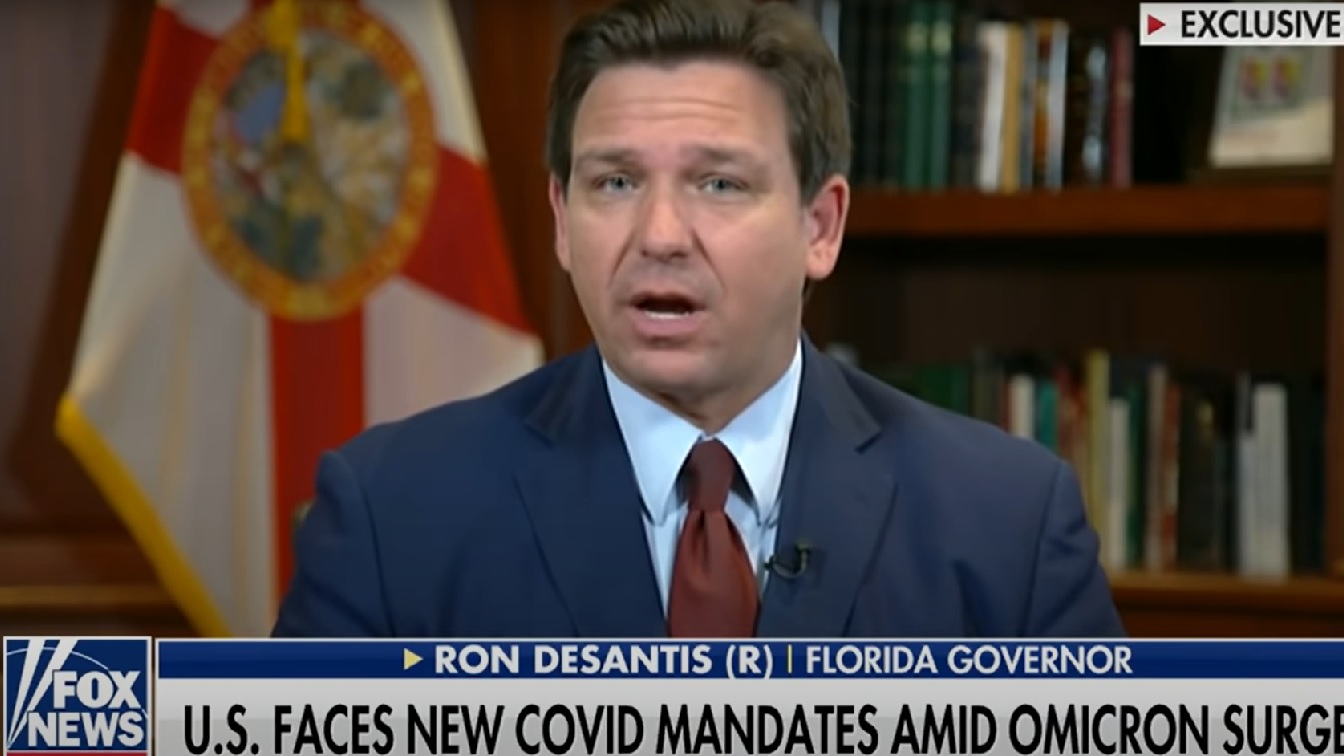How Does Ron DeSantis See America’s Role in the World?: The Republican primary for the 2024 presidential contest is heating up. Former South Carolina Governor Nikki Haley just announced her candidacy. And former US President Donald Trump has already joined. It is widely expected that the race will be between him and Florida Republican Governor Ron DeSantis.
Domestic policy will, of course, dominate the campaign; voter interest in foreign policy is traditionally low. But this is unfortunate because foreign policy is actually what separates Trump most from other candidates, both in and outside the Republican party. Haley, for example, is a fairly traditional hawkish and interventionist Republican voice, which Trump is not.
Similarly, the differences between Trump and current Democratic President Joseph Biden are substantial. Biden is a traditional liberal internationalist in the Democratic party mold reaching all the way back to President Franklin Roosevelt. That is, Biden supports robust American engagement overseas, usually channeled through institutions like NATO or the United Nations. Trump very obviously does not.
The question hanging over the Trump-DeSantis fight, then, is to what extent DeSantis will pick up Trumpian foreign policy themes. DeSantis has very clearly mimicked Trump, right down to his hand gestures, to ingratiate himself with the GOP primary electorate. Where Haley will offer a clear alternative to Trump, DeSantis will offer himself as Trump-lite. This likely means DeSantis will offer a moderate Trumpist foreign policy too, with Haley playing the role of a pre-Trump hawk. But DeSantis has said little on foreign policy to date; indeed, he has not even formally joined the primary. So it is hard to know.
The Trump Doctrine
There is a spirited debate in the US foreign policy community about whether anything as coherent as a ‘Trump doctrine’ exists. Trump himself certainly made no effort to programmatically or systematically suggest new foreign policy principles for his party after the disasters of the George W. Bush Republican presidency. Instead, Trump fell back on instincts: America should come ‘first,’ the Iraq and Afghanistan wars were ‘stupid,’ US allies were ‘ripping off’ America by not spending enough, and so on.
Nonetheless, we can suggest a few core ‘Trumpist’ ideas in foreign policy against which we can measure DeSantis’ inevitable foreign policy pronouncements:
Freedom of Action: Trump’s ‘America First’ slogan is probably best understood as a desire to free America from the constraints of international norms, constraints, and expectations. US involvement in institutions like NATO or the International Monetary Fund creates expectations of certain behaviors – like not defaulting on America’s debt and throwing the world economy into a crisis. Such expectations are not as binding as law, of course, but they do push the US toward certain (responsible) behaviors and, therefore, limit US freedom of action.
Belligerence: Trump has always liked a good fight. He clearly enjoys the drama and media attention of conflict. He even set his own aides against one another in the White House in factional battles for his attention. In foreign policy, this meant that Trump often picked fights which might have been avoided through less provocative diplomacy – with China over covid, Germany over NATO ‘dues,’ Denmark over the sale of Greenland.
Transactionalism: Trump’s greatest break with traditional GOP foreign policy was probably over values. Republican foreign policy going back to President Ronald Reagan emphasized America as a force for good in the world; this reached its apex in the neoconservatism of the second Bush administration. Trump blithely dismissed such talk in 2015 and was happy to describe dictators around the world as his friend.
Will DeSantis Follow the Trump Doctrine?
As Ron DeSantis has risen, so has an interest in this question. We will not know until DeSantis provides a proper programmatic address on the issue (if he even does so; Trump never did). But there are three issues against which we can make an educated guess about whether DeSantis is trending toward Haley’s traditionalism or Trump’s unilateralism:
Assistance to Ukraine: Republican opinion is deeply split on aiding Ukraine, with pre-Trump GOP traditionalists like Senate Minority Leader Mitch McConnell supporting it, and Trumpist newcomers like Ohio Senator J. D. Vance opposing it.
Alliance Commitment: The traditional, Reagan Republican position on allies is that they signal welcome American leadership and supplement US global power. Trump re-imagined them as an entangling hassle. He even promised to end the US-South Korea alliance outright if he were re-elected.
China: Trump was entirely happy cutting deals with China or demonizing it as needed politically. GOP traditionalists see China more ideologically as a threat.
The differences between Haley and Trump on these three questions is clear. But Haley will almost certainly lose to Trump. So the real question is where Ron DeSantis lands on these topics.
MORE: Pete Buttigieg Is Destroying Himself
MORE: Kamala Harris Is Creating a Nightmare for Democrats
MORE: Are We Watching the End of Donald Trump?
Expert Biography
Dr. Robert E. Kelly (@Robert_E_Kelly; RoberEdwinKelly.com) is a professor in the Department of Political Science at Pusan National University and 19FortyFive Contributing Editor.

